30 Inspirational Quotes About keyword research
Rumored Buzz on Content Cluster
Table of ContentsSome Ideas on Topic Clustering You Need To KnowUnknown Facts About Keyword ClusterSome Known Factual Statements About Topic Cluster Keyword Clustering Things To Know Before You Get ThisHow Content Cluster can Save You Time, Stress, and Money.
Normal keyword strategy includes optimizing your material for a restricted number of keywords in an offered pieceoften no more than one or two. This single-keyword technique was an item of its time; search algorithms weren't as advanced as they are today, and building an SEO profile was as easy as optimizing each page for a single-string term.
Browse spiders are now advanced adequate to discover several topics and contextual ideas throughout indexed content, and private keyword methods don't hold the clout they used to. To take a look at it another method, spiders are no longer the restricting aspect in keyword optimization. Why be pleased with a couple of keywords when you could optimize for a hundred? Keyword clusteringalso called keyword groupingis similar to standard keyword research however performed on a much bigger scale.
The process is similar to normal keyword research however on a larger scale and organized a bit in a different way. By creating keyword "clusters," you'll find out more about how keywords relate to one another, which terms might be preferred by your audience, and how to much better identify audience intent. With all https://en.search.wordpress.com/?src=organic&q=search engine optimization of the above in mind, let's dive in to how you can begin the keyword clustering process by yourself.
See This Report on Topic Clustering
Take no prisoners, here. It's much better to have excessive information to work with than not enough. Mine the following sources for keyword details and assemble everything together in a spreadsheet: Existing keyword research study Website user behaviors/customer information Focus keywords/topics covered by competitors Free online assessment tools Google Analytics, Moz, SEMrush, and so on.
Expect to build this list out till you have numerous hundred keywords to deal with. (You'll prune them down in later steps). Put the list together, erase any repeats or replicates you find, and proceed to step 2. Next, take a look at your list and narrow down the search terms up until you have a convenient list.
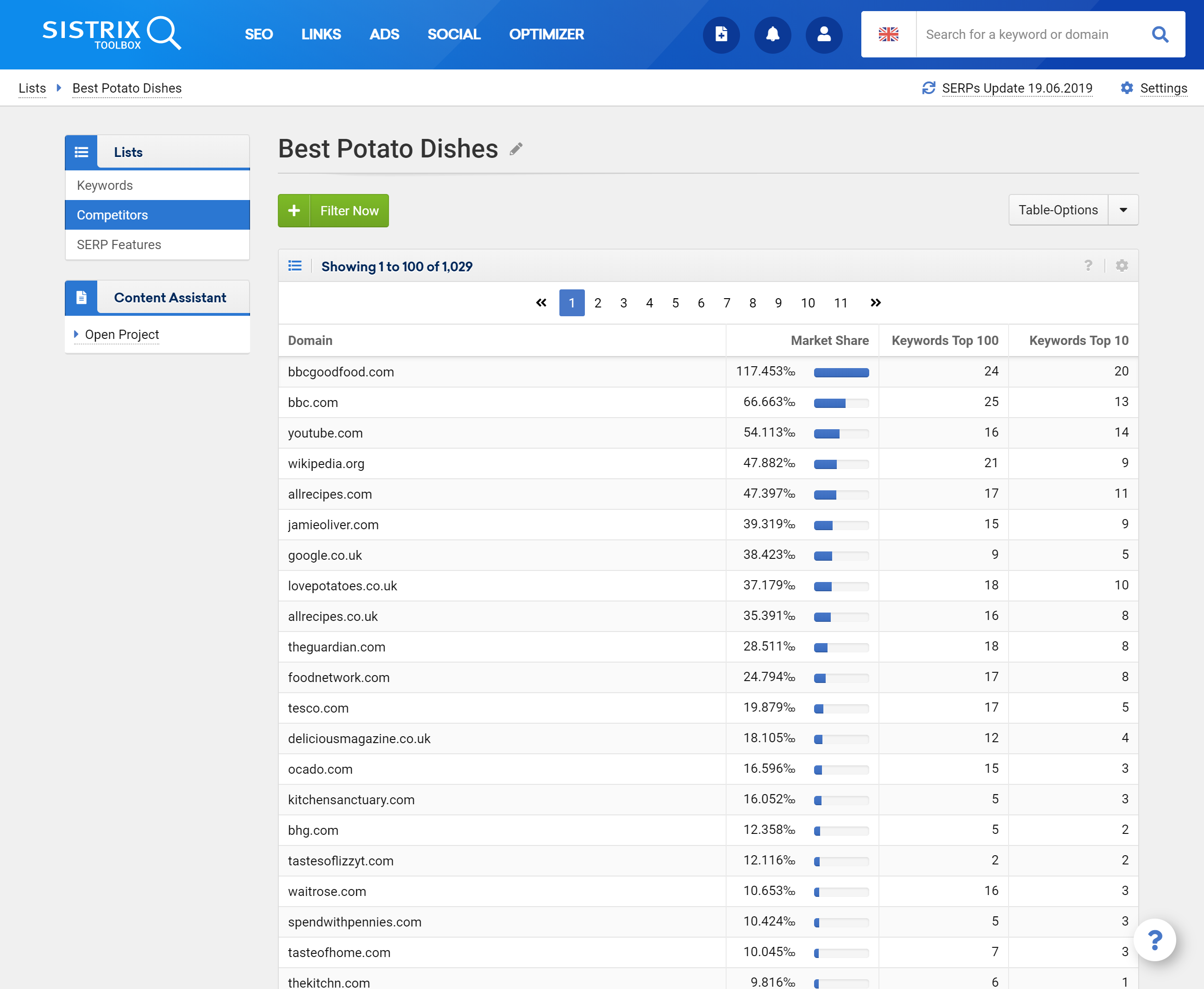 Some Of Keyword Cluster
Some Of Keyword Cluster
You'll likely see that a number of the entries share the exact same focus keyword but with various subcomponents: "Best website design" "The majority of budget-friendly website design" "Web style methods" "Best budget friendly website design" And so on. Obviously, website design is a main keyword, however note which of these subcomponents take place most often too.
Getting My Keyword Cluster To Work
There are some fantastic online tools out there that make this process easy. site From this list, find the keyword terms best fit to driving traffic and content relevance for your audience. From your above list (paired with online word counting tools and Excel counting solutions) you can get a great view of which terms happen usually.
 The 7-Second Trick For Content Cluster
The 7-Second Trick For Content Cluster
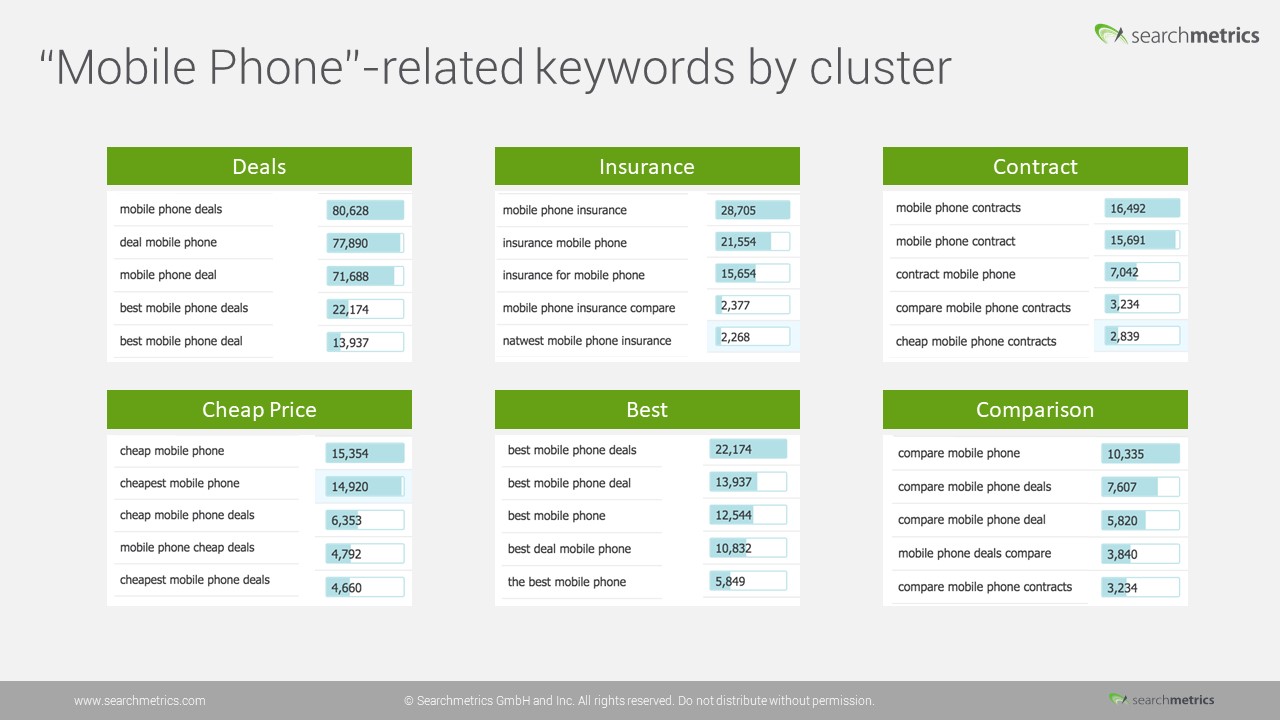 The Single Strategy To Use For Content Cluster
The Single Strategy To Use For Content Cluster
Try to find patterns in these lists and group your keywords together in classifications. A typical option is organizing by marketing funnel phase: Awareness/Lead generation keywords Consideration/Lead nurturing keywords Purchase/Conversion keywords Try to find organizational styles amongst your keywords and assemble them to develop categories. If you're struggling here, check out online tools that can do it for you.
Keep in mind that there's no right or wrong category. It's totally dependent on your preferences. At the end of this step, you need to have a number of grouped keyword lists centralized around particular themes (as well as frequency data and competitiveness rankings). This is the structure you require to enhance your content.
The 7-Minute Rule for Topic Cluster
https://www.youtube.com/embed/xOGxyw9DSa8
There are a couple ways to approach this. You can pass category and technique the optimization blog-by-blog, including keywords in and revitalizing the product with appropriate search terms. Another technique is to look at the keyword classifications and try to find repeating themes that can inform future material production. Either method, you're improving your material (and your SEO) through a disciplined approach built on information instead of uncertainty or impulse.
Content motivated by dozens of focused keyword expressions will get discovered more and be more resistant to the ups and downs of SEO modifications. When compared to the old techniques of optimizing each page for just one or more keywords, it's a no-brainer. Keyword clusters take a fully grown method to http://edition.cnn.com/search/?text=search engine optimization SEO that companies require to stay competitiveboth now, and in the coming years.
Keyword clustering is an exceptional SEO tool. If your pages stop working to gain traction in online search engine and don't generate the quantity of visitors you desired, grouping keywords is a great method to surpass this scenario. It can likewise help you improve your website in general. In the following blog post, we will define what it is and how it can benefit your site.
Some Known Facts About Keyword Cluster.
Let's get begun right now. As a very first action, let's specify just what what we are speaking about. The majority of the time, when doing keyword research, you are aiming to wind up with one primary keyword to target with each of your pages. In reality, Yoast SEO is established in this method and asks you to establish a focus keyphrase when creating material.

Why People Love to Hate Digitaleer - an SEO company
The Definitive Guide for Topic Cluster
Table of ContentsContent Cluster - QuestionsGetting My Content Cluster To WorkContent Cluster Can Be Fun For AnyoneHow Keyword Clustering can Save You Time, Stress, and Money.The smart Trick of Keyword Clustering That Nobody is Talking About
Typical keyword strategy includes enhancing your material for a restricted number of keywords in an offered pieceoften no greater than a couple of. This single-keyword technique was a product of its time; search algorithms weren't as advanced as they are today, and constructing an SEO profile was as basic as enhancing each page for a single-string term.
Search spiders are now sophisticated adequate to discover multiple topics and contextual ideas across indexed content, and specific keyword techniques don't hold the clout they utilized to. To take a look at it another method, spiders are no longer the restricting element in keyword optimization. Why be satisfied with a couple of keywords when you could enhance for a hundred? Keyword clusteringalso known as keyword groupingis comparable to traditional keyword research but performed on a much bigger scale.
The process is similar to typical keyword research study however on a larger scale and arranged a bit in a different way. By developing keyword "clusters," you'll find out more about how keywords associate with one another, which terms might be favored by your audience, and how to better identify audience intent. With all of the above in mind, let's dive in to how you can begin the keyword clustering process by yourself.
What Does Topic Cluster Do?
Take no prisoners, here. It's better to have excessive data to work with than insufficient. Mine the following sources for keyword info and assemble everything together in a spreadsheet: Existing keyword research Site user behaviors/customer data Focus keywords/topics covered by competitors Free online assessment tools Google Analytics, Moz, SEMrush, and so on.
Anticipate to build this list out up until you have numerous hundred keywords to work with. (You'll prune them down in later actions). Put the list together, erase any repeats or duplicates you discover, and move on to step 2. Next, look at your list and limit the search terms till you have a practical list.
 5 Simple Techniques For Keyword Cluster
5 Simple Techniques For Keyword Cluster
You'll likely see that much of https://en.search.wordpress.com/?src=organic&q=search engine optimization the entries share the exact same focus keyword but with different subcomponents: "Finest website design" "Most affordable website design" "Web style methods" http://edition.cnn.com/search/?text=search engine optimization "Best economical web style" And so on. Obviously, web style is a main keyword, but note which of these subcomponents happen most typically too.
Some Known Factual Statements About Content Cluster
There are some excellent online tools out there that make this process simple. From this list, find the keyword terms best matched to driving traffic and content significance for your audience. From your above list (paired with online word counting tools and Excel counting formulas) you can get a terrific view of which terms happen most frequently.
 How Topic Clustering can Save You Time, Stress, and Money.
How Topic Clustering can Save You Time, Stress, and Money.
 Our Topic Clustering Statements
Our Topic Clustering Statements
Look for patterns in these lists and group your keywords together in classifications. A typical choice is grouping by marketing funnel phase: Awareness/Lead generation keywords Consideration/Lead nurturing keywords Purchase/Conversion keywords Try to find organizational styles amongst your keywords and assemble them to produce classifications. If you're struggling here, check out online tools that can do it for you.
Remember that there's no right or wrong classification. It's totally reliant on your choices. At the end of this action, you must have several organized keyword lists centralized around particular themes (in addition to frequency data and competitiveness rankings). This is the structure you require to optimize your material.
Getting The Topic Clustering To Work
https://www.youtube.com/embed/J22dGNR0mKU
There are a couple methods to approach this. You can go by category and technique the optimization blog-by-blog, including keywords in and refreshing the product with relevant search terms. Another approach is to look at the keyword categories and search for recurring themes that can inform future material production. In any case, you're improving your content (and your SEO) through a disciplined technique developed on data rather than uncertainty or instinct.
Material motivated by lots of concentrated keyword expressions will get found more and be more resistant to the drops and flows of SEO modifications. When compared to the old methods of optimizing each page for just one or 2 keywords, it's a no-brainer. Keyword clusters take a fully grown approach to SEO that business need share to stay competitiveboth now, and in the coming years.
Keyword clustering is an excellent SEO tool. If your pages stop working to gain traction in search engines and don't bring in the quantity of visitors you wanted, organizing keywords is a great way to surpass this circumstance. It can also assist you enhance your site in general. In the following article, we will specify what it is and how it can benefit your site.
Keyword Clustering for Dummies
Let's get begun immediately. As a primary step, let's specify just what what we are discussing. The majority of the time, when doing keyword research, you are intending to end up with one primary keyword to target with each of your pages. In fact, Yoast SEO is established in this method and asks you to set up a focus keyphrase when creating material.

The Digitaleer's SEO This Week Awards: The Best, Worst, and Weirdest Things We've Seen
Getting My Topic Cluster To Work
Table of ContentsGetting My Keyword Cluster To WorkTop Guidelines Of Keyword ClusteringContent Cluster Things To Know Before You BuyUnknown Facts About Keyword ClusterThe Definitive Guide for Topic Clustering
Normal keyword technique includes enhancing your material for a limited number of keywords in a provided pieceoften no greater than one or 2. This single-keyword technique was an item of its time; search algorithms weren't as advanced as they are today, and developing an SEO profile was as easy as optimizing each page for a single-string term.
Search spiders are now sophisticated sufficient to spot numerous topics and contextual clues across indexed material, and specific keyword strategies do not hold the clout they utilized to. To look at it another way, crawlers are no longer the restricting consider keyword optimization. Why be satisfied with a couple of keywords when you could enhance for a hundred? Keyword clusteringalso understood as keyword groupingis comparable to standard keyword research however carried out on a much bigger scale.
The process resembles normal keyword research however on a larger scale and arranged a bit differently. By developing keyword "clusters," you'll discover more about how keywords relate to one another, which terms may be preferred by your audience, and how to better recognize audience intent. With all of the above in mind, let's dive in to how you can begin the keyword clustering process by yourself.
The Only Guide to Keyword Cluster
Take no detainees, here. It's much http://query.nytimes.com/search/sitesearch/?action=click&contentCollection®ion=TopBar&WT.nav=searchWidget&module=SearchSubmit&pgtype=Homepage#/search engine optimization better to have excessive data to deal with than not enough. Mine the following sources for keyword details and assemble everything together in a spreadsheet: Existing keyword research study Website user behaviors/customer data Focus keywords/topics covered by rivals Free online assessment tools Google Analytics, Moz, SEMrush, and so on.
Anticipate to construct this list out until you have a number of hundred keywords to deal with. (You'll prune them down in later actions). Put the list together, delete any repeats or duplicates you discover, and proceed to step 2. Next, look at your list and limit the search terms up until you have a workable list.
 The Facts About Content Cluster Uncovered
The Facts About Content Cluster Uncovered
You'll likely see that a lot of the entries share the very same focus keyword but with various subcomponents: "Best web style" "Many inexpensive website design" "Web style strategies" "Best affordable website design" And so on. Clearly, web style is a main keyword, however note which of these subcomponents occur usually as well.
Indicators on Content Cluster You Should Know
There are some great online tools out there that make this process easy. From this list, find the keyword terms finest suited to driving traffic and content significance for your audience. From your above list (paired with online word counting tools and Excel counting solutions) site you can get a fantastic view of which terms happen frequently.
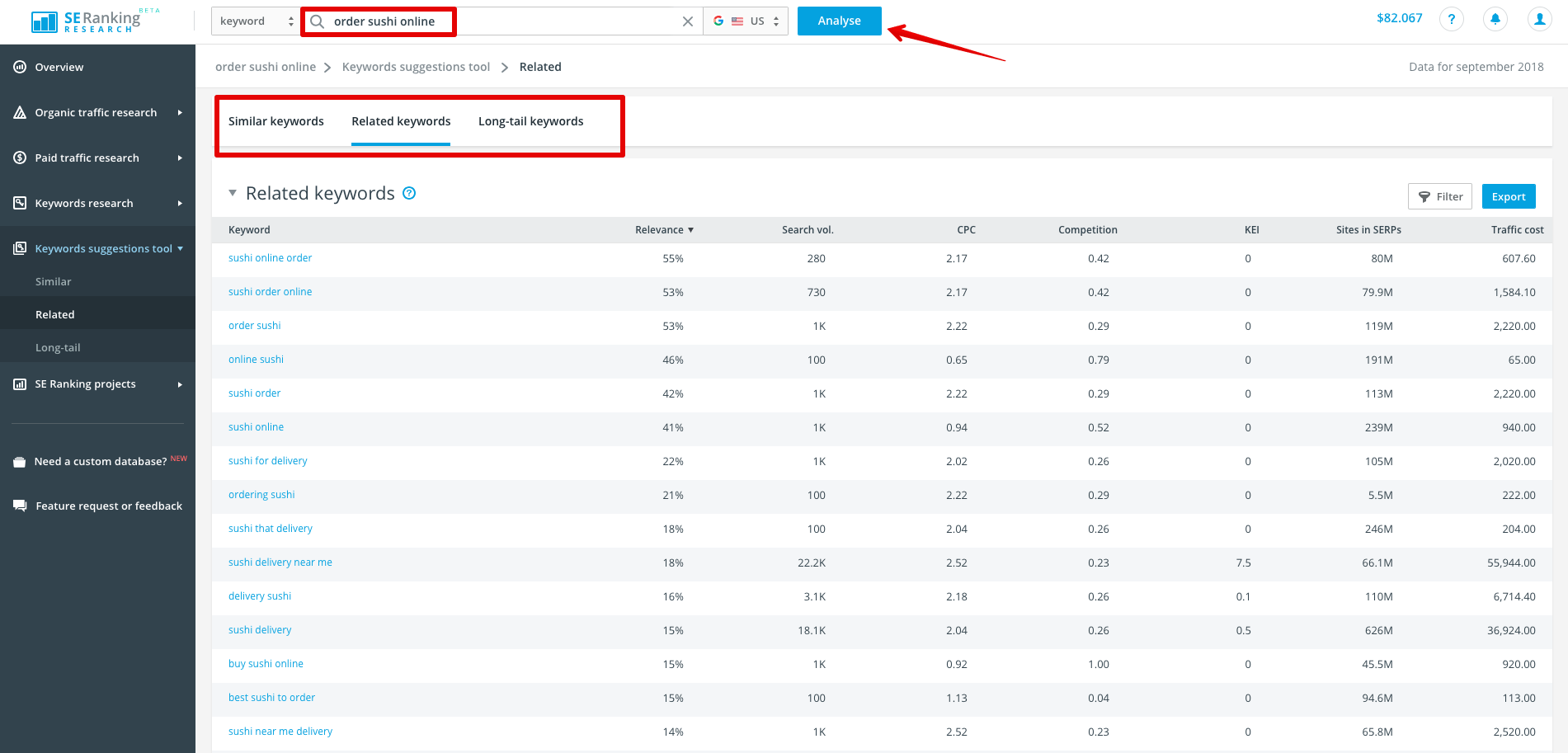 The Ultimate Guide To Topic Clustering
The Ultimate Guide To Topic Clustering
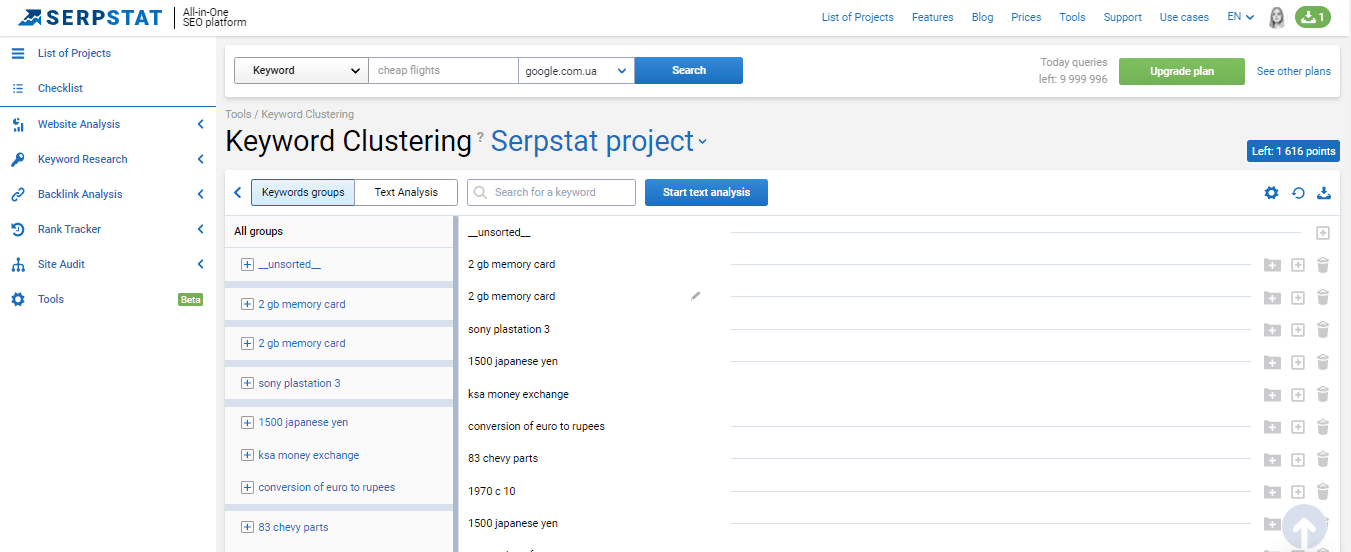 The Main Principles Of Topic Clustering
The Main Principles Of Topic Clustering
Try to find patterns in these lists and group your keywords together in categories. A typical option is grouping by marketing funnel stage: Awareness/Lead generation keywords Consideration/Lead supporting keywords Purchase/Conversion keywords Look for organizational themes amongst your keywords and assemble them to produce classifications. If you're struggling here, look into online tools that can do it for you.
Remember that there's no right or incorrect category. It's entirely depending on your preferences. At the end of this action, you must have a number of organized keyword lists centralized around particular styles (as well as frequency information and competitiveness rankings). This is the framework you require to enhance your material.
The Of Content Cluster
https://www.youtube.com/embed/xOGxyw9DSa8
There are a couple ways to approach this. You can pass classification and approach the optimization blog-by-blog, including keywords in and refreshing the product with appropriate search terms. Another method is to take a look at the keyword categories and look for repeating themes that can notify future content production. In any case, you're enhancing your material (and your SEO) through a disciplined method developed on information instead of uncertainty or impulse.
Content inspired by lots of focused keyword expressions will get discovered more and be more resistant to the ups and downs of SEO changes. When compared to the old approaches of enhancing each page for just one or 2 keywords, it's a no-brainer. Keyword clusters take a fully grown method to SEO that companies require to stay competitiveboth now, and in the coming years.
Keyword clustering is an exceptional SEO tool. If your pages fail to gain traction in search engines and do https://en.search.wordpress.com/?src=organic&q=search engine optimization not generate the quantity of visitors you wanted, organizing keywords is a terrific way to improve upon this scenario. It can also assist you enhance your site in general. In the following article, we will specify what it is and how it can benefit your site.
Keyword Clustering Things To Know Before You Buy
Let's get begun right away. As a primary step, let's specify just what what we are talking about. Many of the time, when doing keyword research study, you are intending to end up with one main keyword to target with each of your pages. In reality, Yoast SEO is established in this method and asks you to establish a focus keyphrase when developing content.

7 Things You Should Not Do With SEO This Week Episode 186 - Keyword Clustering
Not known Facts About Keyword Clustering
Table of ContentsAll about Keyword ClusteringSome Known Factual Statements About Topic Cluster The 3-Minute Rule for Keyword ClusteringSee This Report about Keyword ClusteringThe Main Principles Of Keyword Clustering
Source: Moz However, in times where you require to develop material for readers, not browse spiders, the search engine has become far better at comprehending context, synonyms, and associated topics. As a consequence, it will rank pages for whole hosts of keywords, not simply single expressions. Because this is occurring anyway, why not benefit from it and produce content precisely with that goal in mind? That way, you increase your opportunities of showing up for numerous search queries, suggesting more chances individuals will click on your short articles and concern your site.
 More About Keyword Clustering
More About Keyword Clustering
No worries young padawan, that is precisely what we will go through for the rest of the post. (Is padawan still a relevant cultural reference in 2019 or am I getting old?) As you will see below, there are numerous ways to do keyword clustering. However, what they all have in common is that you first need a selection of essential expressions to develop clusters from.
For those who do not wish to read an entire post, here are a number of exceptional sources to obtain this kind of info from: Conceptualizing keywords based on your website, audience, and industry Competitor analysis and marketing research SEO tools (e. g. AnswerThePublic, Keywordtool. io) Info in Google Browse Console and Google Analytics The important thing at this phase is to go for quantity not quality.
Excitement About Keyword Clustering
How much is enough? Nevertheless many you can find, however several hundred to a thousand is a great starting point. It can also be a lot more. Your objective is to make a total sweep so you never need to do it again. As soon as you are satisfied, it's time to start organizing them into clusters that make sense.
https://www.youtube.com/embed/kjrJFE7LUKA
One of the methods to go from a long list of keywords to topical clusters is to do develop them by hand. By that, I don't recommend that you go through several thousand keyword possibilities one by one and classify them by hand. Rather, you can do some old-school SEO work and utilize a spreadsheet.
It includes the following steps: Running your keyword list through a word and phrase frequency counter to discover the most-used search parts Finding out the most crucial terms and expressions to develop topical groups Assigning your search expressions by topic to produce keyword clusters The entire thing includes a whole lot of spreadsheet hoax and formulas.
4 Simple Techniques For Topic Cluster
While the above is fantastic to get your hands dirty and really understand the process, it's not the only possibility. There are a variety of tools out there that can group your keywords immediately. All you https://en.search.wordpress.com/?src=organic&q=search engine optimization need to do is feed them your list and the rest occurs by itself.
It provides you 30 free searches initially and one daily when you have utilized up your quota. Simply copy and paste your list of keywords in there and after that struck the button on the bottom right. You will wind up with something like this. In my test, the outcomes were respectable.
You can likewise eliminate any group from the outcomes that don't make sense by clicking the X. That method, you end up only with those that are useful. Plus, the tool will email you the full list if you want. Obviously, where there are complimentary tools, there are also paid versions.
Getting My Keyword Cluster To Work
Here are a number of fantastic options: Topvisor This is an SEO suite for all sorts of functions. It includes a rank tracker, keyword research, auditing tool and a lot of other functions. The keyword clustering tool provides a totally free trial and uses Google's leading outcomes to find related keywords based upon the URLs they appear in.
8 per 100 keywords. WordStream The above-mentioned WordStream share likewise has more to offer than the totally free keyword clustering tool. They mainly focus on running Pay Per Click campaigns and aid with analysis and optimization. If that is your thing, rates begins at $20/month. SpySerp SpySerp is a keyword rank tracker that works both for Google and Bing.
 Content Cluster Can Be Fun For Anyone
Content Cluster Can Be Fun For Anyone
After that, they http://query.nytimes.com/search/sitesearch/?action=click&contentCollection®ion=TopBar&WT.nav=searchWidget&module=SearchSubmit&pgtype=Homepage#/search engine optimization have different plans that begin at $19/month. Serpstat This choice has a keyword clustering tool that uses real-life information from Google for grouping keyphrases. Aside from that, you get keyword research study, search analytics, rank tracking, website auditing and a lot more. You can start for $19 a month for an individual plan.
Content Cluster for Dummies
SE Ranking Similar to the above, here you feed your keyword collection into its grouping tool, set your filtering alternatives (country, search engines, language, accuracy) and it will get to work. SE Ranking likewise has a complimentary trial. If you sign up, you get access to their other SEO tools (rank tracking, rival research study, backlink monitoring and more).

10 Secrets About Digitaleer - an SEO company You Can Learn From TV
Content Cluster - Questions
Table of ContentsNot known Facts About Topic ClusterOur Keyword Cluster StatementsSome Known Factual Statements About Content Cluster Getting My Topic Clustering To WorkSome Known Questions About Keyword Cluster.
Normal keyword strategy involves enhancing your material for a limited variety of keywords in an offered pieceoften no greater than a couple of. This single-keyword method was a product of its time; search algorithms weren't as advanced as they are today, and constructing an SEO profile was as basic as enhancing each page for a single-string term.
Search crawlers are now sophisticated enough to detect multiple subjects and contextual clues across indexed content, and specific keyword strategies don't hold the clout they used to. To look at it another method, crawlers are no longer the limiting element in keyword optimization. Why be satisfied with a few keywords when you could enhance for a hundred? Keyword clusteringalso called keyword groupingis similar to standard keyword research but carried out on a much bigger scale.
The procedure is comparable to typical keyword research however site on a larger scale and arranged a bit differently. By creating keyword "clusters," you'll find out more about how keywords relate to one another, which terms might be preferred by your audience, and how to better identify audience intent. With all of the above in mind, let's dive in to how you can begin the keyword clustering procedure on your own.
Keyword Clustering - The Facts
Take no detainees, here. It's better to have too much data to deal with than insufficient. Mine the following sources for keyword details and put together whatever together in a spreadsheet: Existing keyword research Website user behaviors/customer data Focus keywords/topics covered by rivals Free online assessment tools Google Analytics, Moz, SEMrush, and so on.
Expect to develop this list out until you have several hundred keywords to work with. https://www.washingtonpost.com/newssearch/?query=search engine optimization (You'll prune them down in later actions). Put the list together, delete any repeats or replicates you find, and move on to step 2. Next, look at your list and narrow down the search terms until you have a practical list.
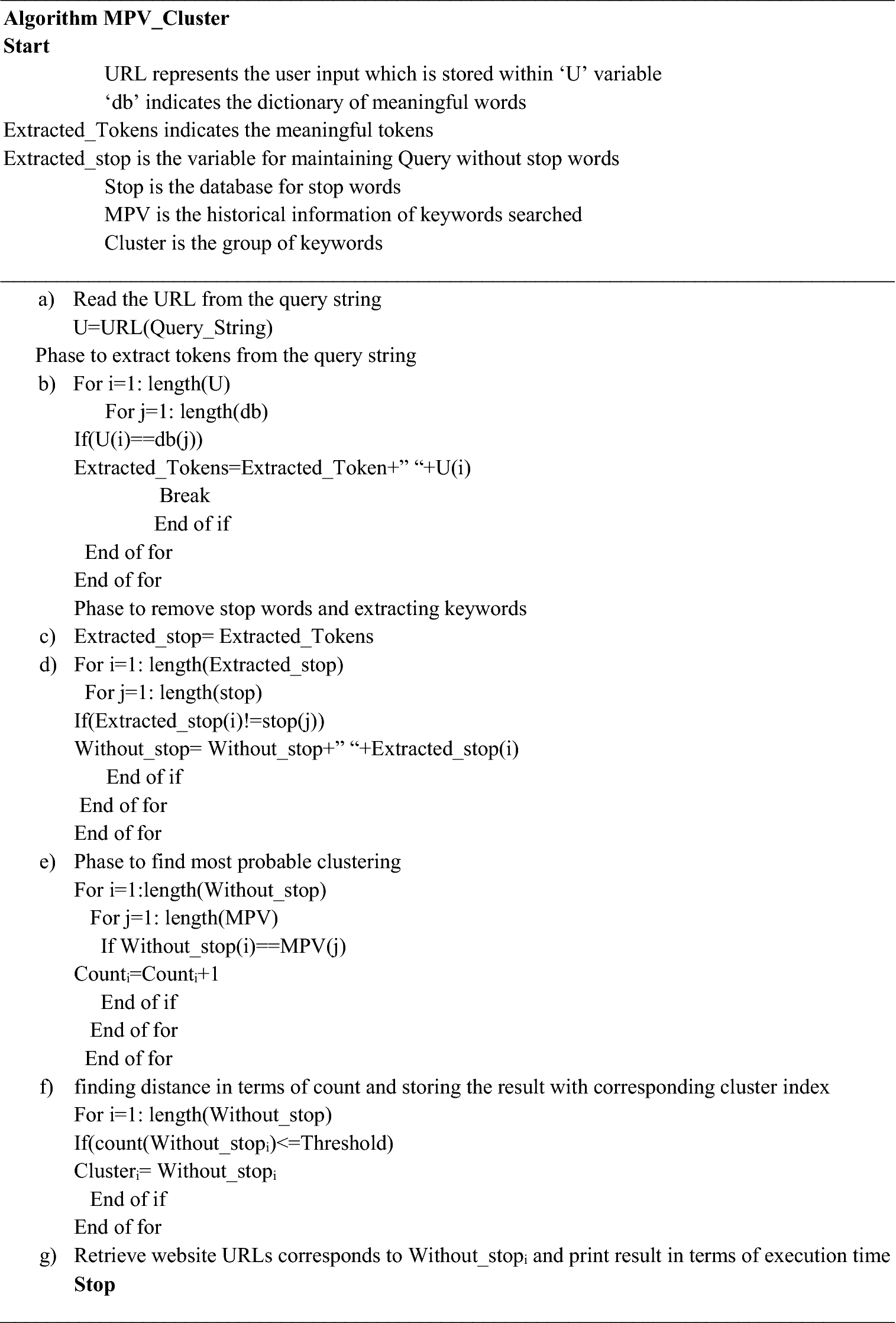 5 Easy Facts About Topic Clustering Shown
5 Easy Facts About Topic Clustering Shown
You'll likely notice that a lot of the entries share the same focus keyword however with various subcomponents: "Finest web style" "Most affordable website design" "Website design techniques" "Finest affordable web design" And so on. Undoubtedly, website design is a primary keyword, but note which of these subcomponents happen most often also.
The 10-Second Trick For Content Cluster
There are some fantastic online tools out there that make this procedure easy. From this list, discover the keyword terms finest matched to driving traffic and content relevancy for your audience. From your above list (paired with online word counting tools and Excel counting formulas) you can get a fantastic view of which terms take place frequently.
 How Keyword Clustering can Save You Time, Stress, and Money.
How Keyword Clustering can Save You Time, Stress, and Money.
 What Does Content Cluster Mean?
What Does Content Cluster Mean?
Try to find patterns in these lists and group your keywords together in categories. A common choice is organizing by marketing funnel stage: Awareness/Lead generation keywords Consideration/Lead nurturing keywords Purchase/Conversion keywords Look for organizational themes among your keywords and compile them to create classifications. If you're having a hard time here, check out online tools that can do it for you.
Bear in mind that there's no right or incorrect category. It's totally depending on your choices. At the end of this action, you should have several grouped keyword lists centralized around particular themes (along with frequency information and competitiveness rankings). This is the framework you need to enhance your material.
Getting The Content Cluster To Work
https://www.youtube.com/embed/xOGxyw9DSa8
There are a couple methods to approach this. You can pass category and approach the optimization blog-by-blog, including keywords in and refreshing the product with pertinent search terms. Another approach is to look at the keyword classifications and try to find repeating themes that can inform future material production. In either case, you're improving your material (and your SEO) through a disciplined technique constructed on information rather than uncertainty or instinct.
Material inspired by lots of focused keyword expressions will get found more and be more resistant to the recedes and flows of SEO changes. When compared to the old techniques of enhancing each page for just one or 2 keywords, it's a no-brainer. Keyword clusters take a fully grown method to SEO that companies need to remain competitiveboth now, and in the coming years.
Keyword clustering is an outstanding SEO tool. If your pages stop working to get traction in search engines and do not generate the quantity of visitors you desired, grouping keywords is a great method to enhance upon this scenario. It can also assist you improve your website in general. In the following blog site post, we will specify what it is and how it can benefit your site.
Getting My Keyword Cluster To Work
Let's get begun right now. As an initial step, http://www.thefreedictionary.com/search engine optimization let's specify what precisely what we are discussing. The majority of the time, when doing keyword research study, you are aiming to wind up with one primary keyword to target with each of your pages. In truth, Yoast SEO is established in this method and asks you to set up a focus keyphrase when developing content.

Responsible for a data Budget? 10 Terrible Ways to Spend Your Money
http://edition.cnn.com/search/?text=search engine optimization id="content-section-0">Some Known Details About Keyword Cluster
Table of ContentsThe Facts About Topic Cluster RevealedRumored Buzz on Keyword ClusteringTopic Cluster Fundamentals ExplainedThe Only Guide to Keyword ClusterLittle Known Facts About Keyword Cluster.
Source: Moz Nevertheless, in times where you need to develop material for readers, not browse spiders, the online search engine has ended up being better at comprehending context, synonyms, and related topics. As a consequence, it will rank pages for whole hosts of keywords, not just single expressions. Given that this is taking place anyway, why not make the most of it and create content exactly with that goal in mind? That way, you increase your chances of showing up for numerous search questions, meaning more possibilities individuals will click on your articles and come to your website.
 What share Does Keyword Clustering Mean?
What share Does Keyword Clustering Mean?
No worries young padawan, that is exactly what we will go through for the remainder of the article. (Is padawan still an appropriate cultural referral in 2019 or am I getting old?) As you will see below, there are numerous ways to do keyword clustering. Nevertheless, what they all share is that you initially require a choice of crucial expressions to produce clusters from.
For those who do not wish to check out a whole post, here are a number of outstanding sources to glean this type of information from: Conceptualizing keywords based upon your site, audience, and market Rival analysis and market research study SEO tools (e. g. AnswerThePublic, Keywordtool. io) Information in Google Browse Console and Google Analytics The crucial thing at this phase is to go for amount not quality.
The Best Strategy To Use For Keyword Clustering
How much is enough? However numerous you can discover, but a number of hundred to a thousand is a good beginning point. It can also be a lot more. Your goal is to make a total sweep so you never need to do it again. When you are satisfied, it's time to begin organizing them into clusters that make sense.
https://www.youtube.com/embed/6p1Htw3OjpU
Among the methods to go from a long list of keywords to topical clusters is to do produce them manually. By that, I do not recommend that you go through numerous thousand keyword possibilities one by one and classify them by hand. Rather, you can do some old-school SEO work and utilize a spreadsheet.
It involves the following actions: Running your keyword list through a word and phrase frequency counter to find the most-used search parts Figuring out the most important terms and http://query.nytimes.com/search/sitesearch/?action=click&contentCollection®ion=TopBar&WT.nav=searchWidget&module=SearchSubmit&pgtype=Homepage#/search engine optimization expressions to create topical groups Appointing your search expressions by subject to develop keyword clusters The entire thing involves a whole bunch of spreadsheet trickery and solutions.
About Topic Cluster
While the above is terrific to get your hands filthy and actually understand the process, it's not the only possibility. There are a number of tools out there that can group your keywords instantly. All you need to do is feed them your list and the rest happens by itself.
It offers you 30 complimentary searches at first and one per day as soon as you have actually consumed your quota. Merely copy and paste your list of keywords in there and after that struck the button on the bottom right. You will end up with something like this. In my test, the results were respectable.
You can likewise remove any group from the results that don't make good sense by clicking the X. That way, you end up only with those that are practical. Plus, the tool will email you the complete list if you wish. Obviously, where there are complimentary tools, there are likewise paid versions.
Some Of Topic Cluster
Here are a variety of great choices: Topvisor This is an SEO suite for all sorts of purposes. It includes a rank tracker, keyword research, auditing tool and a lot of other functions. The keyword clustering tool offers a free trial and uses Google's top outcomes to discover related keywords based on the URLs they appear in.
8 per 100 keywords. WordStream The above-mentioned WordStream likewise has more to use than the free keyword clustering tool. They mainly concentrate on running PPC campaigns and aid with analysis and optimization. If that is your thing, prices starts at $20/month. SpySerp SpySerp is a keyword rank tracker that works both for Google and Bing.
 Topic Clustering - Questions
Topic Clustering - Questions
After that, they have different plans that start at $19/month. Serpstat This option has a keyword clustering tool that uses real-life data from Google for grouping keyphrases. Aside from that, you get keyword research, search analytics, rank tracking, website auditing and a lot more. You can start for $19 a month for a personal strategy.
The 25-Second Trick For Keyword Cluster
SE Ranking Similar to the above, here you feed your keyword collection into its organizing tool, set your filtering alternatives (nation, search engines, language, precision) and it will get to work. SE Ranking likewise has a complimentary trial. If you sign up, you get access to their other SEO tools (rank tracking, rival research study, backlink monitoring and more).

Addicted to keywords? Us Too. 6 Reasons We Just Can't Stop
Fascination About Topic Clustering
Table of ContentsKeyword Cluster Can Be Fun For AnyoneKeyword Clustering - An OverviewSome Known Factual Statements About Keyword Clustering Indicators on Topic Clustering You Should KnowThe Ultimate Guide To Content Cluster
Source: Moz However, site in times where you require to produce content for readers, not browse spiders, the online search engine has become much better at comprehending context, synonyms, and associated topics. As a repercussion, it will rank pages for entire hosts of keywords, not simply single expressions. Considering that this is happening anyway, why not benefit from it and create content exactly with that objective in mind? That method, you increase your chances of showing up for lots of search questions, implying more chances people will click on your posts and concern your site.
 The Of Topic Clustering
The Of Topic Clustering
No worries young padawan, that is precisely what we will go through for the remainder of the article. (Is padawan still a relevant cultural recommendation in 2019 or am I getting old?) As you will see below, there are several methods to do keyword clustering. Nevertheless, what they all have in typical is that you initially require a choice of key phrases to produce clusters from.
For those who don't wish to check out an entire post, here are a variety of exceptional sources to obtain this type of info from: Brainstorming keywords based upon your website, audience, and industry Competitor analysis and marketing research SEO tools (e. g. AnswerThePublic, Keywordtool. io) Information in Google Browse Console and Google Analytics The important thing at this phase is to choose quantity not quality.
The Main Principles Of Keyword Clustering
How much suffices? However lots of you can discover, however numerous hundred to a thousand is a good beginning point. It can likewise be a lot more. Your goal is to make a total sweep so you never ever need to do it again. http://www.bbc.co.uk/search?q=search engine optimization Once you are pleased, it's time to start grouping them into clusters that make good sense.
https://www.youtube.com/embed/YvfPKADP6CE
One of the methods to go from a long list of keywords to topical clusters is to do develop them manually. By that, I don't suggest that you go through numerous thousand keyword possibilities one by one and classify them by hand. Rather, you can do some old-school SEO work and use a spreadsheet.
It involves the following actions: Running your keyword list through a word and phrase frequency counter to find the most-used search components Determining the most crucial terms and phrases to develop topical groups Assigning your search expressions by subject to develop keyword clusters The entire thing includes a whole lot of spreadsheet hoax and formulas.
How Keyword Cluster can Save You Time, Stress, and Money.
While the above is great to get your hands filthy and truly comprehend the process, it's not the only possibility. There are a number of tools out there that can group your keywords automatically. All you need to do is feed them your list and the rest happens by itself.
It offers you 30 complimentary searches at first and one each day as soon as you have actually utilized up your quota. Just copy and paste your list of keywords in there and then hit the button on the bottom right. You will wind up with something like this. In my test, the results were quite good.
You can also get rid of any group from the results that do not make sense by clicking the X. That method, you end up only with those that are useful. Plus, the tool will email you the full list if you wish. Obviously, where there are totally free tools, there are http://query.nytimes.com/search/sitesearch/?action=click&contentCollection®ion=TopBar&WT.nav=searchWidget&module=SearchSubmit&pgtype=Homepage#/search engine optimization likewise paid variations.
The Only Guide for Keyword Clustering
Here are a number of terrific choices: Topvisor This is an SEO suite for all sorts of purposes. It includes a rank tracker, keyword research, auditing tool and a great deal of other functions. The keyword clustering tool uses a free trial and uses Google's top outcomes to find associated keywords based upon the URLs they appear in.
8 per 100 keywords. WordStream The above-mentioned WordStream also has more to provide than the complimentary keyword clustering tool. They primarily focus on running PPC campaigns and help with analysis and optimization. If that is your thing, pricing begins at $20/month. SpySerp SpySerp is a keyword rank tracker that works both for Google and Bing.
 The Greatest Guide To Content Cluster
The Greatest Guide To Content Cluster
After that, they have various strategies that start at $19/month. Serpstat This alternative has a keyword clustering tool that uses real-life information from Google for grouping keyphrases. Aside from that, you get keyword research study, search analytics, rank tracking, website auditing and a lot more. You can begin for $19 a month for a personal plan.
Facts About Topic Cluster Revealed
SE Ranking Similar to the above, here you feed your keyword collection into its organizing tool, set your filtering options (nation, search engines, language, precision) and it will get to work. SE Ranking likewise has a free trial. If you register, you get access to their other SEO tools (rank tracking, rival research study, backlink tracking and more).

How the 10 Worst Digitaleer's SEO This Week Fails of All Time Could Have Been Prevented
8 Easy Facts About Keyword Cluster Described
Table of ContentsTop Guidelines Of Keyword ClusterThe 8-Second Trick For Topic ClusteringGetting My Keyword Clustering To WorkWhat Does Topic Cluster Do?Keyword Cluster Can Be Fun For Everyone
Normal keyword method includes optimizing your content for a minimal variety of keywords in a given pieceoften no greater than a couple of. This single-keyword approach was an item share of its time; search algorithms weren't as advanced as they are today, and constructing an SEO profile was as simple as optimizing each page for a single-string term.
Search crawlers are now advanced enough to spot numerous subjects and contextual ideas throughout indexed content, and specific keyword strategies do not hold the clout they utilized to. To take a look at it another method, spiders are no longer the restricting aspect in keyword optimization. Why be satisfied with a few keywords when you could enhance for a hundred? Keyword clusteringalso referred to as keyword groupingis comparable to standard keyword research however carried out on a much larger scale.
The procedure resembles typical keyword research but on a bigger scale and organized a bit differently. By developing keyword "clusters," you'll discover more about how keywords relate to one another, which terms might be favored by your audience, and how to much better recognize audience intent. With all of the above in mind, let's dive in to how you can begin the keyword clustering process by yourself.
What Does Topic Cluster Mean?
Take no detainees, here. It's much better to have excessive data to work with than inadequate. Mine the following sources for keyword info and put together everything together in a spreadsheet: Existing keyword research study Site user behaviors/customer data Focus keywords/topics covered by competitors Free online assessment tools Google Analytics, Moz, SEMrush, and so on.
Anticipate to develop this list out until you have several hundred keywords to work with. (You'll prune them down in later actions). Put the list together, erase any repeats or replicates you discover, and proceed to step 2. Next, look at your list and limit the search terms till you have a convenient list.
 Some Known Details About Topic Cluster
Some Known Details About Topic Cluster
You'll likely observe that much of the entries share the very same focus keyword however with different subcomponents: "Best website design" "Many cost effective website design" "Website design techniques" "Finest inexpensive website design" And so on. Certainly, web design is a primary keyword, however note which of these subcomponents happen most frequently too.
Content Cluster Fundamentals Explained
There are some excellent online tools out there that make this process easy. From this list, find the keyword terms finest suited to driving traffic and content relevance for your audience. From your above list http://www.bbc.co.uk/search?q=search engine optimization (paired with online word counting tools and Excel counting formulas) you can get a terrific view of which terms happen most typically.
 Excitement About Keyword Clustering
Excitement About Keyword Clustering
 The Single Strategy To Use For Topic Cluster
The Single Strategy To Use For Topic Cluster
Look for patterns in these lists and group your keywords together in categories. A common choice is grouping by marketing funnel stage: Awareness/Lead generation keywords Consideration/Lead nurturing keywords Purchase/Conversion keywords Search for organizational styles amongst your keywords and compile them to develop classifications. If you're struggling here, check out online tools that can do it for you.
Bear in mind that there's no right or wrong category. It's totally based on your preferences. At the end of this action, you ought to have several grouped keyword lists centralized around specific themes (along with frequency data and competitiveness rankings). This is the framework you need to enhance your material.
Rumored Buzz on Topic Clustering
https://www.youtube.com/embed/xOGxyw9DSa8
There are a couple ways to approach this. You can go by classification and method the optimization blog-by-blog, including keywords in and refreshing the product with pertinent search terms. Another method is to take a look at the keyword categories and try to find recurring themes that can notify future material production. Either way, you're enhancing your content (and your SEO) through a disciplined approach built on information instead of uncertainty or impulse.
Material motivated by lots of concentrated keyword phrases will get discovered more and be more resistant to the ups and downs of SEO changes. When compared to the old techniques of optimizing each page for only one or 2 keywords, it's a no-brainer. Keyword clusters take a fully grown approach to SEO that business need to stay competitiveboth now, and in the coming years.
Keyword clustering is an exceptional SEO tool. https://en.search.wordpress.com/?src=organic&q=search engine optimization If your pages stop working to acquire traction in online search engine and don't bring in the amount of visitors you desired, grouping keywords is an excellent way to improve upon this circumstance. It can also assist you enhance your website in basic. In the following post, we will specify what it is and how it can benefit your website.
The Ultimate Guide To Keyword Clustering
Let's start right away. As a primary step, let's define what precisely what we are talking about. The majority of the time, when doing keyword research, you are intending to wind up with one primary keyword to target with each of your pages. In reality, Yoast SEO is set up in this method and asks you to set up a focus keyphrase when creating content.

15 Weird Hobbies That'll Make You Better at SEO Company Digitaleer
The 10-Minute Rule for Content Cluster
Table of ContentsThe Content Cluster IdeasGet This Report on Keyword ClusterWhat Does Topic Clustering Mean?6 Easy Facts About Topic Clustering ExplainedContent Cluster Can Be Fun For Anyone
Normal keyword technique includes optimizing your material for a restricted variety of keywords in a given pieceoften no more than one or 2. This single-keyword method was an item of its time; search algorithms weren't as advanced https://www.washingtonpost.com/newssearch/?query=search engine optimization as they are today, and constructing an SEO profile was as easy as optimizing each page learning SEO for a single-string term.
Search spiders are now advanced adequate to spot multiple topics and contextual clues throughout indexed material, and specific keyword strategies don't hold the clout they utilized to. To look at https://en.wikipedia.org/wiki/?search=search engine optimization it another method, spiders are no longer the restricting consider keyword optimization. Why be satisfied with a few keywords when you could enhance for a hundred? Keyword clusteringalso called keyword groupingis similar to traditional keyword research however performed on a much bigger scale.
The procedure resembles common keyword research study but on a bigger scale and arranged a bit differently. By developing keyword "clusters," you'll discover more about how keywords connect to one another, which terms might be favored by your audience, and how to better identify audience intent. With all of the above in mind, let's dive in to how you can start the keyword clustering procedure by yourself.
The 45-Second Trick For Keyword Clustering
Take no prisoners, here. It's much better to have too much data to work with than not enough. Mine the following sources for keyword information and compile everything together in a spreadsheet: Existing keyword research Site user behaviors/customer information Focus keywords/topics covered by competitors Free online evaluation tools Google Analytics, Moz, SEMrush, and so on.
Expect to build this list out till you have several hundred keywords to work with. (You'll prune them down in later steps). Put the list together, delete any repeats or replicates you discover, and carry on to step 2. Next, look at your list and narrow down the search terms till you have a workable list.
 Topic Clustering Can Be Fun For Everyone
Topic Clustering Can Be Fun For Everyone
You'll likely discover that a number of the entries share the exact same focus keyword but with various subcomponents: "Best web design" "A lot of budget friendly website design" "Web style methods" "Best economical website design" And so on. Certainly, website design is a main keyword, however note which of these subcomponents happen usually too.
Topic Clustering Things To Know Before You Get This
There are some fantastic online tools out there that make this process easy. From this list, discover the keyword terms finest matched to driving traffic and content relevance for your audience. From your above list (paired with online word counting tools and Excel counting formulas) you can get a great view of which terms happen usually.
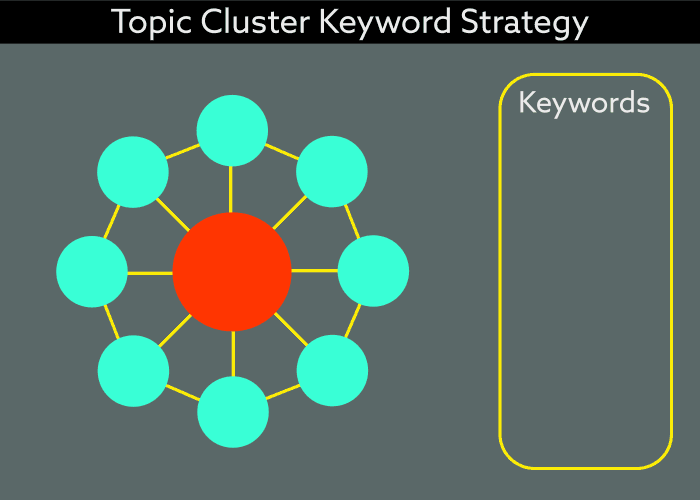 Indicators on Keyword Cluster You Should Know
Indicators on Keyword Cluster You Should Know
 The Greatest Guide To Keyword Cluster
The Greatest Guide To Keyword Cluster
Search for patterns in these lists and group your keywords together in classifications. A common option is grouping by marketing funnel stage: Awareness/Lead generation keywords Consideration/Lead nurturing keywords Purchase/Conversion keywords Search for organizational themes among your keywords and compile them to create classifications. If you're struggling here, look into online tools that can do it for you.
Bear in mind that there's no right or wrong category. It's entirely depending on your preferences. At the end of this action, you ought to have a number of grouped keyword lists centralized around specific themes (along with frequency information and competitiveness rankings). This is the framework you require to enhance your content.
Some Ideas on Keyword Cluster You Should Know
https://www.youtube.com/embed/J22dGNR0mKU
There are a couple methods to approach this. You can pass category and method the optimization blog-by-blog, adding keywords in and refreshing the material with relevant search terms. Another technique is to take a look at the keyword classifications and look for repeating themes that can notify future material production. In either case, you're improving your content (and your SEO) through a disciplined technique built on information instead of guesswork or impulse.
Content motivated by lots of concentrated keyword phrases will get discovered more and be more resistant to the ebbs and flows of SEO modifications. When compared to the old methods of enhancing each page for just one or two keywords, it's a no-brainer. Keyword clusters take a mature method to SEO that business require to remain competitiveboth now, and in the coming years.
Keyword clustering is an outstanding SEO tool. If your pages stop working to acquire traction in online search engine and don't bring in the amount of visitors you desired, organizing keywords is a terrific method to improve upon this scenario. It can likewise help you enhance your site in general. In the following blog site post, we will specify what it is and how it can benefit your website.
Things about Topic Clustering
Let's start right away. As an initial step, let's specify exactly what what we are talking about. The majority of the time, when doing keyword research, you are intending to end up with one primary keyword to target with each of your pages. In fact, Yoast SEO is set up in this way and asks you to establish a focus keyphrase when creating material.

How to Outsmart Your Boss on SEO This Week Episode 186 - Keyword Clustering Done Right
Getting My Topic Cluster To Work
Table of ContentsFacts About Keyword Cluster UncoveredThe Definitive Guide for Content ClusterKeyword Clustering Can Be Fun For AnyoneUnknown Facts About Keyword ClusteringNot known Details About Keyword Clustering
Normal keyword strategy involves enhancing your content for a restricted variety of keywords in an offered pieceoften no more than one or 2. This single-keyword technique was a product of its time; search algorithms weren't as advanced as they are today, and developing an SEO profile was as basic as enhancing each page for a single-string term.
Search spiders are now sophisticated adequate to identify multiple topics and contextual ideas throughout indexed content, and individual keyword strategies do not hold the influence they used to. To take a look at it another method, spiders are no longer the limiting element in keyword optimization. Why be satisfied with a couple of keywords when you could enhance for a hundred? Keyword clusteringalso called keyword groupingis similar to standard keyword research study but performed on a much larger scale.
The process resembles common keyword research study but on a larger scale and arranged a bit differently. By producing keyword "clusters," you'll learn more about how keywords associate with one another, which terms may be favored by your audience, and how to better determine audience intent. With all https://en.wikipedia.org/wiki/?search=search engine optimization of the above in mind, let's dive in to how you can begin the keyword clustering process on your own.
The Best Guide To Keyword Clustering
Take no prisoners, here. It's better to have excessive information to work with than inadequate. Mine the following sources for keyword info and assemble whatever together in a spreadsheet: Existing keyword research Website user behaviors/customer data Focus keywords/topics covered by rivals Free online assessment tools Google Analytics, Moz, SEMrush, etc.
Expect to construct this list out till you have several hundred keywords to work with. (You'll prune them down in later actions). Put the list together, erase any repeats or replicates you find, and move on to step two. Next, look at your list and narrow down the search terms up until you have a practical list.
 The Ultimate Guide To Keyword Clustering
The Ultimate Guide To Keyword Clustering
You'll likely observe that many of the entries share the very same focus keyword however with various subcomponents: "Finest website design" "The majority of budget-friendly web style" "Web design techniques" "Finest affordable web design" And so on. Clearly, web design is a main keyword, but note which of these subcomponents happen most often as well.
The Best Guide To Topic Cluster
There are some great online tools out there that make this procedure easy. From this list, discover the keyword terms finest suited to driving traffic and material significance for your audience. From your above list (paired with online word counting tools and Excel counting solutions) you can get a fantastic view of which terms occur usually.
 The Best Strategy To Use For Content Cluster
The Best Strategy To Use For Content Cluster
 Content Cluster Fundamentals Explained
Content Cluster Fundamentals Explained
Search for patterns in these lists and group your keywords together in classifications. A typical option is organizing by marketing funnel phase: Awareness/Lead generation keywords Consideration/Lead nurturing keywords Purchase/Conversion keywords Look for organizational themes among your keywords and compile them to create classifications. If you're having a hard time here, check out online tools that can do it for you.
Keep in mind that there's no right or wrong category. It's entirely dependent on your preferences. At the end of this step, you should have numerous grouped keyword lists centralized around particular styles (as well as frequency data and competitiveness rankings). This is the structure you require to optimize your material.
Keyword Cluster - An Overview
https://www.youtube.com/embed/xOGxyw9DSa8
There are a couple ways to approach this. You can go by category and approach the optimization blog-by-blog, adding keywords in and refreshing the product with appropriate search terms. Another approach is to look at the keyword classifications and look for recurring themes that can notify future material production. Either way, you're enhancing your material (and your SEO) through a disciplined method constructed on data rather than uncertainty or impulse.
Content inspired by dozens of focused keyword phrases will get discovered more and be more resistant to the lessens and flows of SEO modifications. When compared to the old methods of enhancing each page for just one or more keywords, it's a no-brainer. Keyword clusters take a mature method to SEO that business need to remain competitiveboth now, and in the coming years.
Keyword clustering is an outstanding SEO tool. If your pages fail to acquire traction in http://query.nytimes.com/search/sitesearch/?action=click&contentCollection®ion=TopBar&WT.nav=searchWidget&module=SearchSubmit&pgtype=Homepage#/search engine optimization search engines and don't generate the amount of visitors you wanted, grouping keywords is a terrific method to surpass this circumstance. It can likewise help you improve your website in general. In the following post, we will define what it is and how it can benefit your site.
The 7-Second Trick For Keyword Cluster
Let's start right away. As an initial step, let's define exactly what what we are speaking about. The majority of the time, when doing keyword research, you are intending to learning SEO wind up with one main keyword to target with each of your pages. In reality, Yoast SEO is established in this method and asks you to set up a focus keyphrase when developing material.

What the Oxford English Dictionary Doesn't Tell You About SEO This Week Producted by Digitaleer
The Definitive Guide for Topic Clustering
Table of ContentsContent Cluster Can Be Fun For AnyoneThe Basic Principles Of Content Cluster Facts About Topic Cluster RevealedEverything about Content ClusterMore About Topic Clustering
Source: Moz Nevertheless, in times where you need to create material for readers, not search spiders, the search engine has actually become far better at understanding context, synonyms, and related subjects. As a repercussion, it will rank pages for whole hosts of keywords, not just single expressions. Given that this is taking place anyhow, why not take benefit of it and develop content precisely with that goal in mind? That method, you increase your possibilities of showing up for numerous search questions, indicating more possibilities individuals will click on your short articles and pertain to your website.
 https://www.washingtonpost.com/newssearch/?query=search engine optimization style="display:none" itemprop="caption">8 Easy Facts About Topic Cluster Explained
https://www.washingtonpost.com/newssearch/?query=search engine optimization style="display:none" itemprop="caption">8 Easy Facts About Topic Cluster Explained
No concerns young padawan, that is precisely what we will go through for the remainder of the short article. (Is padawan still a pertinent cultural referral in 2019 or am I getting old?) As you will see below, there are several ways to do keyword clustering. Nevertheless, what they all have in common is that you initially need a selection of crucial phrases to produce clusters from.
For those who don't desire to check out a whole post, here are a number of exceptional sources to obtain this sort of details from: Conceptualizing keywords based on your site, audience, and industry Competitor analysis and marketing research SEO tools (e. g. AnswerThePublic, Keywordtool. io) Info in Google Search Console and http://www.bbc.co.uk/search?q=search engine optimization Google Analytics The essential thing at this stage is to go for amount not quality.
The smart Trick of Topic Clustering That Nobody is Talking About
Just how much suffices? Nevertheless many you can find, however a number learning SEO of hundred to a thousand is a good beginning point. It can also be a lot more. Your goal is to make a total sweep so you never ever need to do it again. Once you are satisfied, it's time to begin organizing them into clusters that make good sense.
https://www.youtube.com/embed/xOGxyw9DSa8
Among the ways to go from a long list of keywords to topical clusters is to do produce them by hand. By that, I do not recommend that you go through a number of thousand keyword possibilities one by one and classify them by hand. Rather, you can do some old-school SEO work and utilize a spreadsheet.
It involves the following steps: Running your keyword list through a word and phrase frequency counter to find the most-used search components Figuring out the most essential terms and expressions to develop topical groups Appointing your search phrases by topic to create keyword clusters The entire thing includes a whole lot of spreadsheet hoax and solutions.
The smart Trick of Topic Clustering That Nobody is Talking About
While the above is great to get your hands filthy and actually understand the procedure, it's not the only possibility. There are a number of tools out there that can organize your keywords instantly. All you need to do is feed them your list and the rest takes place by itself.
It provides you 30 complimentary searches initially and one per day as soon as you have actually utilized up your quota. Simply copy and paste your list of keywords in there and after that hit the button on the bottom right. You will wind up with something like this. In my test, the results were quite excellent.
You can also remove any group from the outcomes that don't make good sense by clicking the X. That way, you wind up only with those that are handy. Plus, the tool will email you the full list if you want. Of course, where there are complimentary tools, there are likewise paid versions.
4 Simple Techniques For Keyword Clustering
Here are a variety of terrific options: Topvisor This is an SEO suite for all sorts of purposes. It comes with a rank tracker, keyword research study, auditing tool and an entire lot of other functions. The keyword clustering tool provides a totally free trial and utilizes Google's top outcomes to find associated keywords based upon the URLs they appear in.
8 per 100 keywords. WordStream Those WordStream likewise has more to use than the complimentary keyword clustering tool. They primarily focus on running PPC projects and help with analysis and optimization. If that is your thing, prices begins at $20/month. SpySerp SpySerp is a keyword rank tracker that works both for Google and Bing.
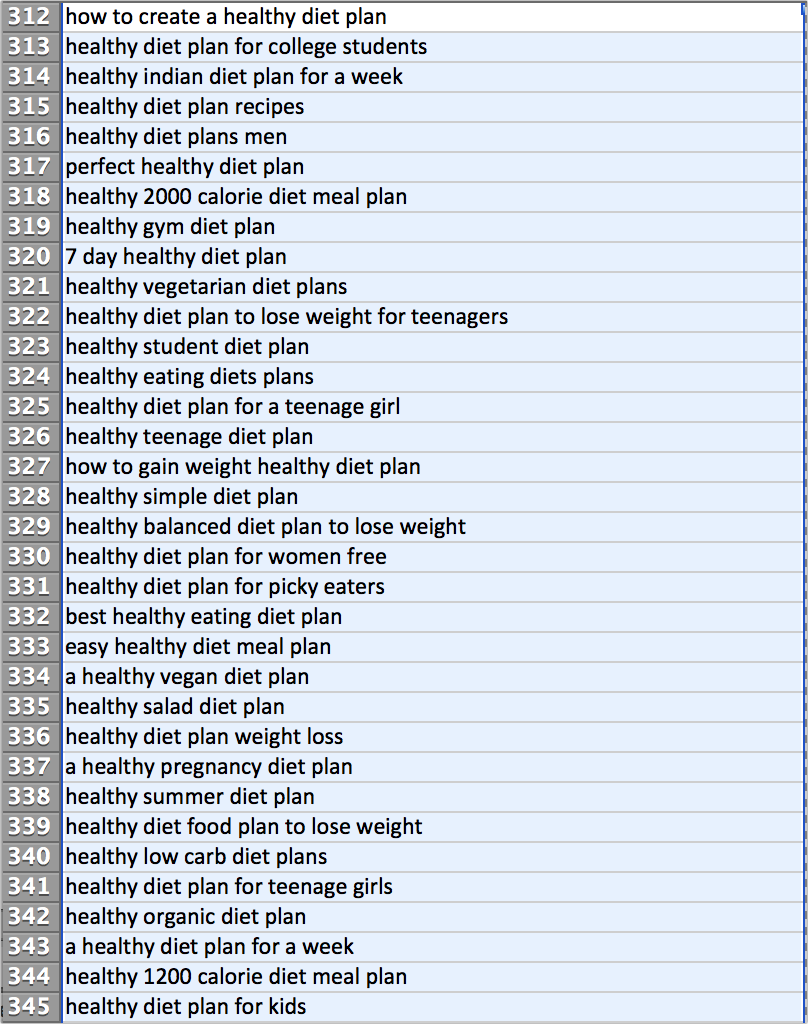 More About Keyword Cluster
More About Keyword Cluster
After that, they have various plans that start at $19/month. Serpstat This option has a keyword clustering tool that utilizes real-life data from Google for organizing keyphrases. Aside from that, you get keyword research study, search analytics, rank tracking, site auditing and a lot more. You can begin for $19 a month for a personal strategy.
How Keyword Clustering can Save You Time, Stress, and Money.
SE Ranking Similar to the above, here you feed your keyword collection into its grouping tool, set your filtering options (country, search engines, language, precision) and it will get to work. SE Ranking likewise has a free trial. If you sign up, you get access to their other SEO tools (rank tracking, rival research, backlink monitoring and more).

Why You Should Focus on Improving optimization
Get This Report about Topic Clustering
Table of ContentsSome Ideas on Topic Clustering You Need To KnowContent Cluster Can Be Fun For EveryoneTopic Clustering Things To Know Before You BuySome Ideas on Topic Cluster You Should KnowGet This Report about Topic Clustering
Source: Moz Nevertheless, in times where you require to produce material for readers, not browse spiders, the online search engine has actually ended up being much better at comprehending context, synonyms, and associated topics. As a consequence, it will rank pages for entire hosts of keywords, not just single phrases. Since this is occurring anyway, why not make the most of it and develop content exactly with that objective in mind? That method, you increase your opportunities of showing up for lots of search inquiries, implying more chances individuals will click your articles and come to your site.
 Topic Clustering Fundamentals Explained
Topic Clustering Fundamentals Explained
No worries young padawan, that is exactly what we will go through for the rest of the short article. (Is padawan still a pertinent cultural referral in 2019 or am I getting old?) As you will see below, there are several methods to do keyword clustering. Nevertheless, what they all have in typical is that you initially require a selection of crucial expressions to create clusters from.
For those who do not wish to read a whole post, here are a number of excellent sources to glean this sort of information from: Brainstorming keywords based upon your site, audience, and market Competitor analysis and market research study SEO tools (e. g. AnswerThePublic, Keywordtool. io) Details in Google Search Console and Google Analytics The important thing at this stage is to choose quantity not quality.
Little Known Facts About Topic Clustering.
How much is enough? Nevertheless numerous you can discover, however several hundred to a thousand is a great beginning point. It can likewise be a lot more. Your objective is to make a total sweep so you never ever have to do it once again. Once you are satisfied, it's time to start grouping them into clusters that make good sense.
https://www.youtube.com/embed/QJsQLwTeF60
One of the ways to go from a long list of keywords to topical clusters is to do develop SEO Company Digitaleer them manually. By that, I do not suggest that you go through numerous thousand keyword possibilities one by one and classify them by hand. Instead, you can do some old-school SEO work and use a spreadsheet.
It involves the following steps: Running your keyword list through a word and expression frequency counter to find the most-used search components Finding out the most crucial terms and phrases to create topical groups Designating your search expressions by topic to develop keyword clusters The entire thing includes a whole bunch of spreadsheet trickery and solutions.
Topic Cluster Fundamentals Explained
While the above is great to get your hands unclean and really comprehend the process, it's not the only possibility. There are a number of tools out there that can organize your keywords automatically. All you need to do is feed them your list and the rest happens by itself.
It provides you 30 complimentary searches at first and one per day as soon as you have consumed your quota. Merely copy and paste your list of keywords in there and then struck the button on the bottom right. You will end up with something like this. In my test, the outcomes were quite excellent.
You can likewise get rid of any group from the outcomes that don't make sense by clicking the X. That method, you wind up just with those that are useful. Plus, the tool will email you the full list if you want. Obviously, where there are free tools, there are also paid versions.
Some Known Facts About Topic Clustering.
Here are a number of fantastic options: Topvisor This is an SEO suite for all sorts of functions. It features a rank tracker, keyword research study, auditing tool and a great deal of other features. The keyword clustering tool provides a free trial and utilizes Google's top outcomes to find associated keywords based on the URLs they appear in.
8 per 100 keywords. WordStream Those WordStream also has more to provide than the free keyword clustering tool. They primarily focus on running PPC projects and aid with analysis and optimization. If that is your thing, rates begins at $20/month. SpySerp SpySerp is a keyword rank tracker that works both for Google and Bing.

After that, they have http://edition.cnn.com/search/?text=keyword clustering various strategies that begin at $19/month. Serpstat This alternative has a keyword clustering tool that utilizes real-life information from Google for organizing keyphrases. Aside from that, you get keyword research study, search analytics, rank tracking, site auditing and a lot more. You can begin for $19 a month for an individual strategy.
The Single Strategy To Use For Content Cluster
SE Ranking Comparable to the above, here you feed your keyword collection into its organizing tool, set your filtering choices (country, online search engine, language, accuracy) and it will get to work. SE Ranking likewise has a free trial. If you sign up, you get access to their other SEO tools (rank tracking, competitor research, backlink tracking and more).

15 Most Underrated Skills That'll Make You a Rockstar in the SEO This Week Producted by Digitaleer Industry
See This Report about Keyword Cluster
Table of ContentsKeyword Cluster Things To Know Before You Get ThisKeyword Clustering for DummiesHow Topic Clustering can Save You Time, Stress, and Money.Facts About Content Cluster UncoveredThe Facts About Content Cluster Uncovered
Typical keyword strategy includes optimizing your material for a restricted number of keywords in a given pieceoften no greater than a couple of. This single-keyword approach was a product of its time; search algorithms weren't as advanced as they are today, and building an SEO profile was as basic as optimizing each page for a single-string term.
Search crawlers are now advanced sufficient to detect numerous subjects and contextual clues throughout indexed content, and private keyword techniques don't hold the clout they used to. To look at it another method, crawlers are no longer the restricting consider keyword optimization. Why be satisfied with a few keywords when you could optimize for a hundred? Keyword clusteringalso referred to as keyword groupingis similar to conventional keyword research but carried out on a much bigger scale.
The procedure resembles normal keyword research but on a bigger scale and organized a bit differently. By developing keyword "clusters," you'll discover more about how keywords relate to one another, which terms might be preferred by your audience, and how to better determine audience intent. With all of the above in mind, let's dive in to how you can start the keyword clustering procedure by yourself.
Some Of Keyword Clustering
Take no detainees, here. It's much better to have excessive data to work with than insufficient. Mine the following sources for keyword info and assemble whatever together in a spreadsheet: Existing keyword research Website user behaviors/customer information Focus keywords/topics covered by rivals Free online assessment tools Google Analytics, Moz, SEMrush, etc.
Anticipate to develop this list out up until you have a number of hundred keywords to deal with. (You'll prune http://www.bbc.co.uk/search?q=keyword clustering them down in later steps). Put the list together, erase any repeats or duplicates you discover, and move on to step 2. Next, take a look at your list and narrow down the search terms until you have a convenient list.

You'll likely discover that much of the entries share the very same focus keyword but with various subcomponents: "Best web style" "The majority of economical web design" "Website design strategies" "Finest budget-friendly web design" And so on. Undoubtedly, website design is a main keyword, but note which of these subcomponents happen frequently as well.
Getting My Keyword Clustering To Work
There are some great online tools out there that make this process easy. From this list, discover the keyword terms finest matched to driving traffic and content relevancy for your audience. From your above list (paired with online word counting tools and Excel counting solutions) you can get an excellent view of which terms happen most often.
 The smart Trick of Topic Clustering That Nobody is Discussing
The smart Trick of Topic Clustering That Nobody is Discussing
 Getting The Topic Cluster To Work
Getting The Topic Cluster To Work
Try to find patterns in these lists and group your keywords together in categories. A common choice is grouping by marketing funnel stage: Awareness/Lead generation keywords Consideration/Lead supporting keywords Purchase/Conversion keywords Try to find organizational themes amongst your keywords and assemble them to develop classifications. If you're struggling here, check out online tools that can do it for you.
Bear in mind that there's no right or incorrect classification. It's completely based on your preferences. At the end of this action, you should have a number of organized keyword lists centralized around particular styles (in addition to frequency information and competitiveness rankings). This is the framework you require to optimize your material.
Excitement About Topic Cluster
https://www.youtube.com/embed/xOGxyw9DSa8
There are a couple methods to approach this. You can go by classification and method the optimization blog-by-blog, including keywords in and revitalizing the product with appropriate search terms. Another approach is to take a look at the keyword categories and look for repeating themes that can inform future material production. Either method, you're improving your material (and your SEO) through a disciplined technique constructed on data instead of guesswork or instinct.
Material influenced by dozens of focused keyword phrases will get discovered more and be more resistant to the recedes and flows of SEO modifications. When compared to the old methods of optimizing each page for just one or more keywords, it's a no-brainer. Keyword clusters take a fully grown technique to SEO that companies require to remain competitiveboth now, and in the coming years.
Keyword clustering is an excellent SEO tool. If your pages fail to get traction in search engines and don't generate the quantity of visitors you desired, grouping keywords is an excellent method to surpass this circumstance. It can also help you improve your website in SEO Company Digitaleer basic. In the following article, we will define what it is and how it can benefit your site.
Some Known Details About Topic Clustering
Let's begin right now. As an initial step, let's specify exactly what what we are talking about. The majority of the time, when doing keyword research, you are aiming to wind up with one primary keyword to target with each of your pages. In truth, Yoast SEO is set up in this way and asks you to establish a focus keyphrase when creating material.

This Week's Top Stories About kind words
What Does Keyword Cluster Do?
Table of Contents6 Easy Facts About Keyword Clustering ShownUnknown Facts About Topic ClusteringThe Keyword Cluster DiariesUnknown Facts About Topic ClusterWhat Does Topic Clustering Mean?
Normal keyword technique involves enhancing your content for a limited number of keywords in an offered pieceoften no greater than one or two. This single-keyword approach was a product of its time; search algorithms weren't as advanced as they are today, and building an SEO profile was as basic as enhancing each page for a single-string term.
Search crawlers are now advanced enough to discover multiple topics and contextual hints across indexed material, and private keyword techniques don't hold the influence they utilized to. To take a look at it another way, crawlers are no longer the limiting aspect in keyword optimization. Why be satisfied with a few keywords when you could enhance for a hundred? Keyword clusteringalso referred to as keyword groupingis comparable to conventional keyword research however carried out on a much larger scale.
The process resembles typical keyword research but on a bigger scale and arranged a bit differently. By developing keyword "clusters," you'll discover more about how keywords connect to one another, which terms might be preferred by your audience, and how to much better determine audience intent. With all of the above in mind, let's dive in to how you can start the keyword clustering procedure on your own.
10 Easy Facts About Topic Clustering Described
Take no prisoners, here. It's much better to have excessive information to deal with than not enough. Mine the following sources for keyword info and compile whatever together in a spreadsheet: Existing keyword research Website user behaviors/customer data Focus keywords/topics covered by competitors Free online assessment tools Google Analytics, Moz, SEMrush, etc.
Anticipate to construct this list out till you have several hundred keywords to deal with. (You'll prune them down in later actions). Put the list together, erase any repeats or replicates you find, and move on to step 2. Next, take a look at your list and narrow down the search terms till you have a workable list.
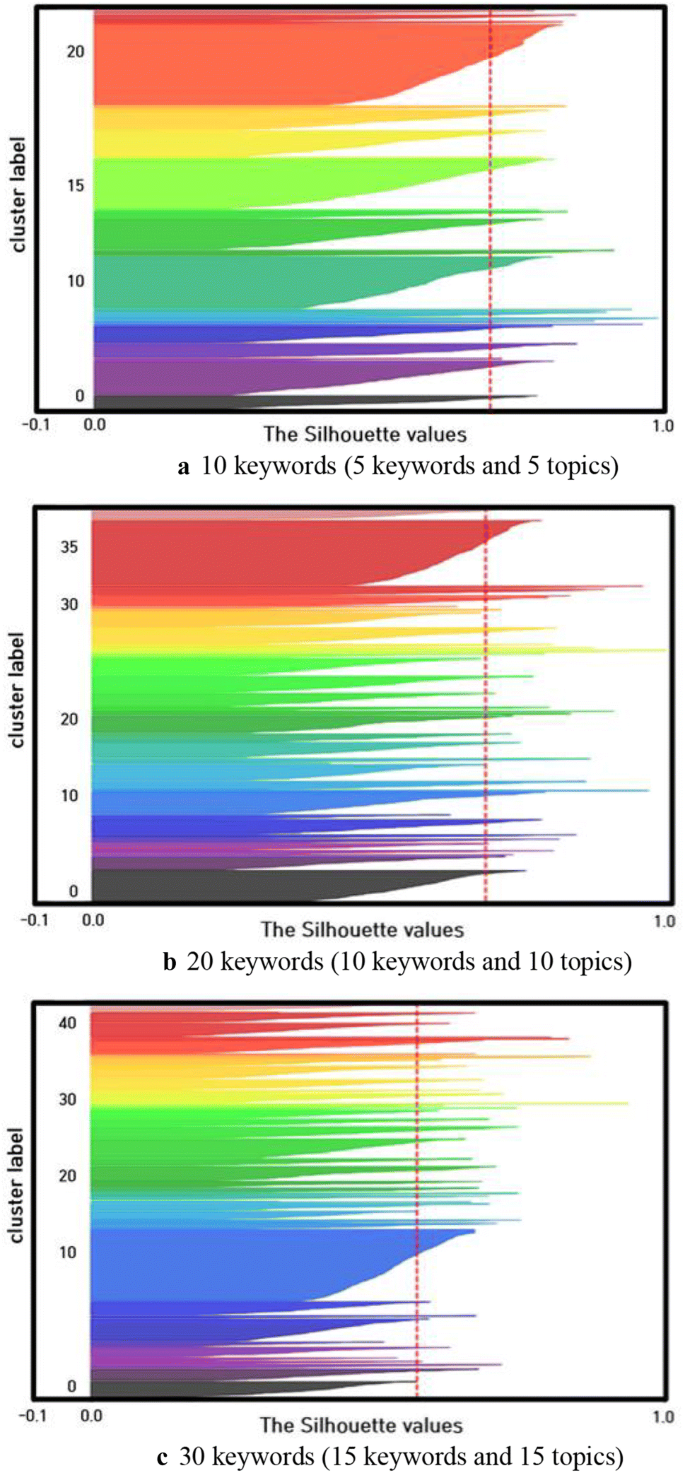 The 3-Minute Rule for Topic Cluster
The 3-Minute Rule for Topic Cluster
You'll likely observe that much of the entries share the exact same focus keyword but with different subcomponents: "Finest website design" "Most inexpensive website design" "Web design methods" "Finest budget friendly web style" And so on. Obviously, website design is a primary keyword, however note which of these subcomponents occur most often too.
Content Cluster for Beginners
There are some great online tools out there that make this procedure easy. From this list, discover the keyword terms finest suited to driving traffic and material relevance for your audience. From your above list (paired with online word counting tools and Excel counting solutions) you can SEO Company Digitaleer get a terrific view of which terms take place usually.
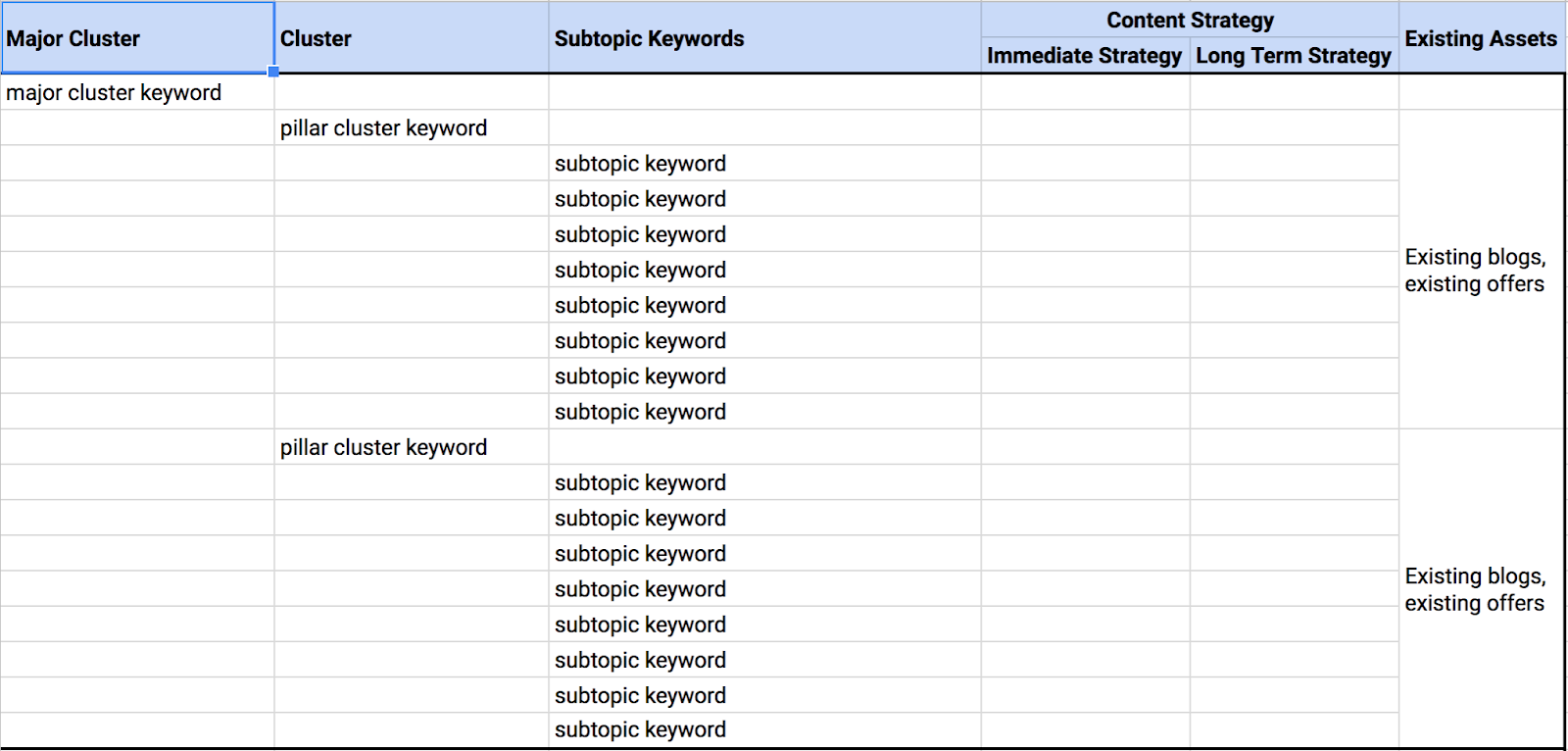 The Greatest Guide To Content Cluster
The Greatest Guide To Content Cluster
![]() The 3-Minute Rule for Keyword Clustering
The 3-Minute Rule for Keyword Clustering
Search for patterns in these lists and group your keywords together in categories. A common option is organizing by marketing funnel phase: Awareness/Lead generation keywords Consideration/Lead supporting keywords Purchase/Conversion keywords Look for organizational themes amongst your keywords and assemble them to produce classifications. If you're struggling here, look into online tools that can do it for you.
Keep in mind that there's no right or incorrect classification. It's totally based on your choices. At the end of this action, you should have numerous organized keyword lists centralized around particular themes (as well as frequency information and competitiveness rankings). This is the framework you need to optimize your content.
The Best Guide To Content Cluster
https://www.youtube.com/embed/xOGxyw9DSa8
There are a couple methods to approach this. You can pass category and method the optimization blog-by-blog, adding keywords in and revitalizing the product with relevant search terms. Another approach is to look at the keyword categories and look for recurring themes that can inform future content production. In any case, you're enhancing your material (and your SEO) through a disciplined method developed on data instead of uncertainty or instinct.
Material inspired by lots of focused keyword phrases will get discovered more and be more resistant to the ups and downs of SEO modifications. When compared to the old approaches of optimizing each page for just one or 2 keywords, it's a no-brainer. Keyword clusters take a fully grown method to SEO that companies need to remain competitiveboth now, and in the coming years.
Keyword clustering is an exceptional SEO tool. If your pages fail to get traction in online search engine and do not generate the quantity of visitors you wanted, organizing keywords is a fantastic method to enhance upon this scenario. It can also assist you enhance your website in basic. In the following article, we will define what it http://edition.cnn.com/search/?text=keyword clustering is and how it can benefit your website.
Keyword Clustering Fundamentals Explained
Let's start right away. As a primary step, let's specify just what what we are discussing. Many of the time, when doing keyword research, you are aiming to wind up with one primary keyword to target with each of your pages. In truth, Yoast SEO is set up in this way and asks you to establish a focus keyphrase when producing material.

20 Myths About Internet Marketing Agency: Busted
What Does Seo Do?
Table of ContentsSeo for DummiesImportant Seo Can Be Fun For AnyoneOur Important 2020 Seo Diaries
 Important Seo for Dummies
Important Seo for Dummies
This may mean utilizing fewer keywords, and with less frequency, however that's not necessarily a bad thing. Add keywords to your page title, headers, and meta description, then use them where they make affordable seo services good sense in your body copy. If they sound uncomfortable or required, simply do not use them. If you have actually spent whenever doing keyword research with tools like Google's Keyword Planner, you know that there is a great deal of competition for particular keywords.
 The Greatest Guide To Important 2020 Seo
The Greatest Guide To Important 2020 Seo
Discovering the best long-tail keywords and expressions will need a long time (much like all of SEO), however can attract visitors who want precisely what you offer. SEO is changing rapidlyand it can be tough to stay up to date with all the patterns and updates. But one thing is specific: the online search engine will continue to reward high-quality material and you require SEO to ensure your audience sees the material.
Without continuous SEO efforts, you risk of losing your top-ranking spots in search results. And rivals will likely jump at the chance to outrank you. You might have the most properly designed site, but if nobody can find it, you won't attract new customers or grow your business. This is why it's so crucial to partner with a trusted SEO company like WebFX.
The Best Strategy To Use For Important Seo
It's time to take our yearly take a look at what's ahead for SEO experts in 2020. What SEO methods and techniques will work and help you dominate in the SERPs and make more income in 2020? This is the question we ask every year here at Search Engine Journal. This year, I asked 58 of today's leading SEO professionals for their ideas.
 Not known Factual Statements About Important 2020 Seo
Not known Factual Statements About Important 2020 Seo
In 2019, the launch of Google's brand-new BERT algorithm got a great deal of attention. Naturally, every SEO expert wants to discover how to optimize for BERT.Well, rather than concentrating on how to optimize for that specific algorithm, take a page from, Search Strategist, Hallmark, who will be focusing on user-focused optimization and the technical shipment of content.
AdvertisementContinue Reading Below" Look at the mechanics of how something is crawled, indexed, and served in a variety of various search settings," Stanze stated. "With users having more options than https://en.search.wordpress.com/?src=organic&q=search engine optimization ever in how they look for things, it'll be much more important for SEOs to bear in mind the principles of tidy architecture and content delivery." With the incorporation of BERT this year into the ranking and featured bits algorithm, Google has actually taken a huge leap forward into making search actually about intent matching rather pure string matching, according to, Development Expert and Advisor." Content will really need to be written to user intent rather than just strings that a user might browse," Schwartz stated.
The Best Strategy To Use For Seo
In 2020, the truly clever SEOs will get up from their desks to speak to customers so they can discover what their audience really desires from them." AdvertisementContinue Reading Below, Elder Program Manager, Bing, echoed that, noting that keyword research, a minimum of as we understand it, is going to become obsolete." There's no indication of [natural language processing] NLP and deep knowing research study slowing https://en.wikipedia.org/wiki/?search=search engine optimization down anytime quickly, and you can expect search engines to shift even further from keywords to intent in 2020," Dubut stated.

How To Get Hired In The Digitaleer Industry
Seo for Beginners
Table of ContentsThe Basic Principles Of Important Seo A Biased View of Important 2020 Seo
 http://www.thefreedictionary.com/search engine optimization itemprop="caption">The Best Guide To Important 2020 Seo
http://www.thefreedictionary.com/search engine optimization itemprop="caption">The Best Guide To Important 2020 Seo
Always focus on your customers, said, Director of Browse, Elevation 10 Thousand" A lot of brand names forget or stop working to realize what it takes to bring in and impress prospective consumers. They want real value," Hollingsworth said. "Much like in a brick-and-mortar establishment, consumers wish to know that you're on their side, that they can trust you, and that you are a trustworthy partner in what is going to be a long-lasting ideally lifelong relationship." AdvertisementContinue Reading Below, Lead SEO/Owner, Search Hermit, hopes 2020 brings a change where we get back to the qualitative, human side of search." Many online marketers market their product or services having actually never spoken one-on-one to their target audiences," Lyden stated.
 What Does Seo Mean?
What Does Seo Mean?
" Talk to them, inquire to tell you about their journey to acquire, how they used search, what they thought about your site. Usage that data in every decision you make." User-focused optimization can only genuinely be done by incorporating SEO into a holistic marketing strategy., SEO Group Director, Publicis Sapient, stated this will be the biggest pattern in 2020." Now, more than ever, companies are going to have to stop treating SEO as a dressing that they simply include on to their digital technique, and rather treat it as an essential ingredient of their organization plan," Jones said.
 Getting The Seo To Work
Getting The Seo To Work
It's going to be less about fixing SEO problems and more about repairing marketing and company issues." AdvertisementContinue Reading Below, Assistant Editor, Browse Engine Journal, said there is something that has actually been and will continue to be the lifeblood of SEO: Content." Material affects everything in SEO," Crowe stated. "From your website structure and internal connecting strategy to the types of links you construct." To prosper in 2020, you will need to write something that is appropriate and valuable, stated, CEO, WrightIMC." This suggests that SEOs need to discover how to compose or employ people who know how to compose," Wright said.
Not known Facts About Seo
But the day is coming when the finest content will win." Make it your goal to have the best content on the internet for your topic, or at least a crucial subset of your topic, stated, General Supervisor, Perficient Digital. By doing so, you will be future-Google-proofing your company." This permits you to complete effectively for long-tail searches (which still remains about 70% of all search questions), will help develop your site authority and demand for your material, and can be done in a directly ROI favorable method," Enge stated.
Stop targeting private keywords, chasing pageviews, and "spraying and hoping" with content. McDonald said to focus more on topics." The goal of changing the mindset to more of a topic-focus is to create content that addresses an entire discussion holistically rather than just stressing over the single keyword a page need to be targeting," McDonald said.
" Boiled down: Understand who your audience is and how they browse. Comprehend the intent behind the concerns they are https://www.washingtonpost.com/newssearch/?query=search engine optimization asking or problems they need to solve. Give them solutions or answers in the formats they choose through on-point, quality, and authoritative material. Carry out in this fashion for each stage affordable seo services of their journey to create an acceptable topical experience that serves their requirements again and again.

